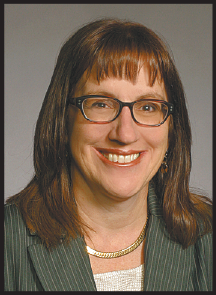April 25, 2016
Your Advocacy Connection
 By Nancy Phelps
By Nancy Phelps
GolderCare Solutions
Lack of Mental Health Resources for Older Adults
Mental health. This is really no different than physical health except that it has to do with our emotions and brain. Mental and emotional well-being are as important in older age as at any other time of life Approximately 15 percent of adults aged 60 and over suffer from a mental health disorder. (www.who.int/mediacentre/factsheets).
Most people over age 60 think having mental health problems is a stigma. They are not totally wrong, but none the less, we need to help. First diagnose there is a problem, and second, help find resources.
Two of the most common diagnoses are anxiety and depression. Let’s start with anxiety. Everyone has felt anxiety at some time in their life. It can be overwhelming, chronic and very debilitating. It can exacerbate and become a phobia to certain objects, events, or situations. Chronic anxiety can affect a person’s ability to concentrate which can affect their work or ability to be productive. It can hinder or damage a relationship and often cause a person to become anti-social and completely avoid contact with anyone.
The second most common mental health problem is depression. Hear me loud and clear….”Depression is not a normal part of aging.” Globally an estimated 350 million people are affected by depression (www.who.int/mediacentre). Depression occurs in 7 percent of the general elderly population (www.who.int/mediacentre). Yet it is under recognized and under treated in many primary care settings. Depression can co-occur with other illnesses such as heart disease, stroke, diabetes, cancer, Parkinson’s and many other illnesses. Health care professionals often conclude that depression is a part of the illness. It is not. The illness could contribute to depression, but it should be treated in conjunction with their physical illness.
Signs/symptoms of depression:
- Extreme sadness or depressed mood
- Lack of interest in activities that were once pleasurable
- Apathy and low energy levels
- Difficulty focusing
- Loneliness or withdrawing from friends and family
- Feelings of helplessness and guilt
- Not being able to sleep or sleeping all the time
- Suicidal thoughts and feelings
We all get sad from time to time, but if you, or someone you know, is experiencing changes in behaviors like the ones listed previously, it’s important to reach out for help before things get worse.
We need to train health professionals who care for older adults to help prevent and manage age-associated chronic diseases including mental, neurological and substance use disorders. To do this, we need to provide environments that promote positive mental health such as: adequate housing, social support, provide freedom and security, health and social programs that target those who live alone or in rural populations.
Getting resources for older adults is very difficult and almost impossible, particularly if you are non-ambulatory or have transportation issues. Medicare will pay for therapists to go to people’s homes and into nursing homes, but there aren’t that many therapists who are willing to make the trek to people’s homes. It, again, becomes a financial issue deterrent for the therapists. Meaning, they can see 6-8 people in their office compared to probably only seeing 3 or 4 in people’s homes or facility due to travel time and traffic.
As our older adult population increases, medical doctors, facilities, patient advocates, and families need to recognize the importance of good mental health in their patients and loved ones. People do not need to settle for an anxious depressed life. There are solutions, we just need to fight harder for the resources to be available to all older adults who need mental health help.
Remember: Untreated depression can delay recovery from or worsen the outcome of most illness. When they say, “it’s all in your head” they are partially right. We do need to deal with the brains emotional well-being to help the rest of our bodies heal well.
Nancy Phelps, LISW, LCSW, is a Care Advocate at GolderCare Solutions. She is a licensed independent social worker in Iowa & Illinois with 15 years’ experience in the mental health field. Working at GolderCare allows her to use her years of attaining resources to help others in crisis/need find the resources and help they can use. You can reach Nancy at GolderCare Solutions Unlimited, LLC 309-764-2273.
Kathy Nitz is a Benefits Advocate for GolderCare Solutions. She uses her wealth of knowledge and experience in benefits planning to help seniors and those who are disabled.
Filed Under: Health & Wellness
Trackback URL: https://www.50pluslife.com/2016/04/25/your-advocacy-connection-21/trackback/


